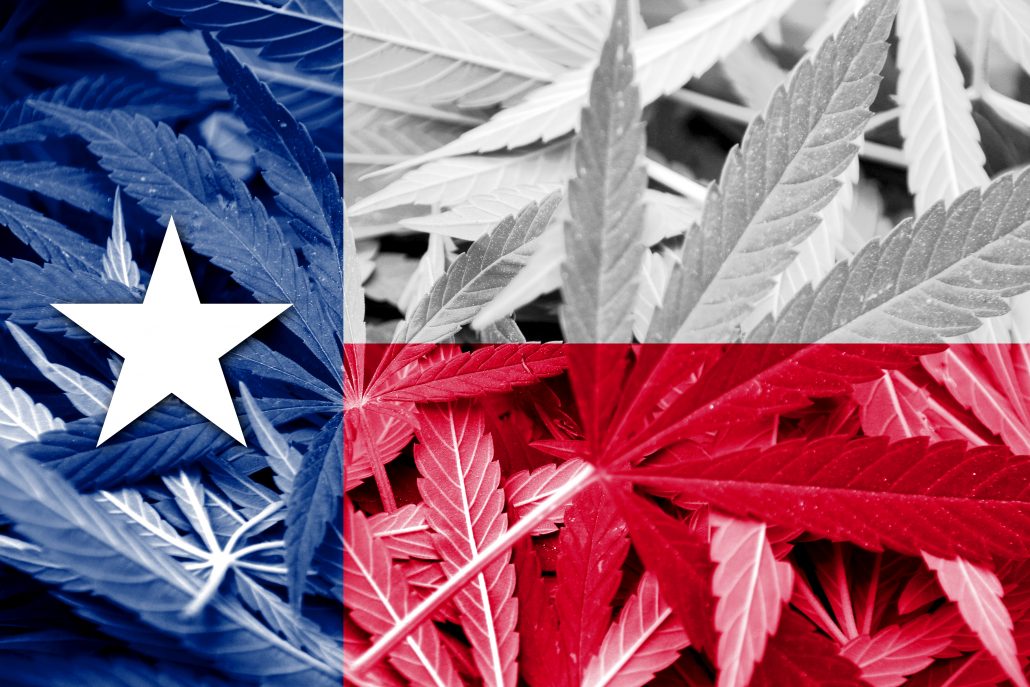Last Thursday, over two years after Republican Governor Gregg Abbott signed the law to legalize the sale of specific cannabis oil in Texas for intractable epilepsy, the first legal delivery in the state was made.
Many medical cannabis advocates are calling this a historic moment for the Lone Star State, as it could be the catalyst to usher in a new era of drug policy as it relates to medicinal alternatives.
The First Delivery
The first recipient of medical cannabis oil in Texas was a school-aged child. A spokesperson for the company told reporters that it could not disclose which city the patient lives in, but did share how the delivery was made.
Current regulations dictate that only a social worker or nurse can deliver the medical cannabis product to a patient or the patient’s caregiver. In the case of Texas’s first delivery, a nurse transported the oil to the patient’s home. The nurse also showed the patient how to use it.
The first delivery was made by Knox Medical, a dispensary in Schulenburg. José Hidalgo, the founder, and CEO of Knox Medical stated,
“For Texans suffering from intractable epilepsy, the wait for medical cannabis is finally over. This is a historic day for Texas and we will work tirelessly to uphold the trust and responsibility the state has placed in Knox Medical.”
Notably, less than 1% of the population of Texas suffer from intractable epilepsy. But still, that comes out to roughly 160,000 people.
Texas Medical Cannabis Law
At this point, there are only three licensed medical cannabis dispensaries in the state of Texas. These facilities were allowed to be opened following the 2015 Texas Compassion Use Act. But the programs are run by the Texas Department of Public Safety. However, Texas has not been as open with their medical cannabis movement as other parts of the country. As of now, state law scarcely allows for the sale of medical cannabis oils. The only oils to be sold are those that meet requirements:
- Low levels of tetrahydrocannabinol, the psychoactive element in marijuana known as THC.
- High levels of cannabidiol, a non-euphoric component known as CBD that is used to treat epilepsy and other chronic medical conditions.
And patients themselves have to meet very specific criteria. A person only qualifies if:
- They are a permanent resident of Texas
- Have been diagnosed with intractable epilepsy
- Must have tried two FDA-approved drugs and found them ineffective
- Qualified physician has determined they would benefit from medical cannabis
- Have a second qualified physician agree with the assessment that they would benefit
Qualified doctors must be listed on the Compassionate Use Registry of Texas.
Needless to say, Texans won’t be rushing out to dispensaries anytime soon to stock up on medicinal marijuana. State officials seem to have a very precise mission in mind when it comes to allowing for this treatment to go forward. Still, some medical cannabis supporters are happy with the direction. So how do products like medical cannabis and CBD oil impact those trying to recovery from addiction?
Legalization and Recovery
In the world of recovery from drugs or alcohol, the idea that marijuana legalization is becoming more widely accepted may seem tempting to some. Others seem to believe legalizing marijuana invites more hard drug use. What does it really mean for the recovery community or people struggling with addiction?
Legalizing a drug and having it readily available may be tempting, but it’s not as if it isn’t already done everywhere with alcohol. Almost any store you walk into is stocked with booze and plastered with adds to try and sell cigarettes. People in recovery from addiction are already exposed every day to some of the most dangerous drugs in the world because they are legal.
When we talk about legalization of marijuana, we want to remind people that for many struggling with substance use disorder the issue is not the specific chemicals you are using. Addiction is far more complex, influencing the mind while terrorizing the body. A drug is not suddenly any safer or better for you because it is becoming socially acceptable or legal.
It is important to find a middle ground. We can support those who benefit from new modalities while offering effective treatment opportunities to those who struggle. However, it is also important to offer experience and education for those who truly struggle with chemical dependency and everything else that comes with substance use disorder. It may seem easier to justify using marijuana for some people. But people should also know that marijuana abuse is a real risk. Substituting one drug for another is probably not the best option for some habitual drug users.


